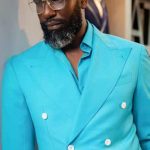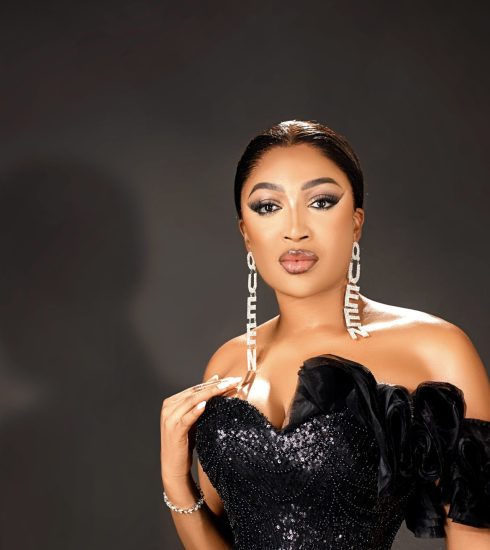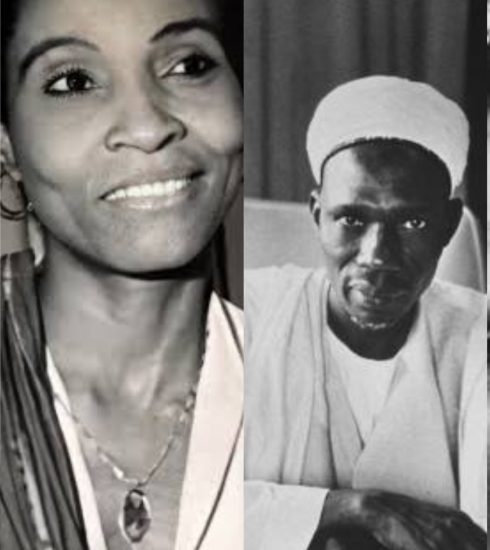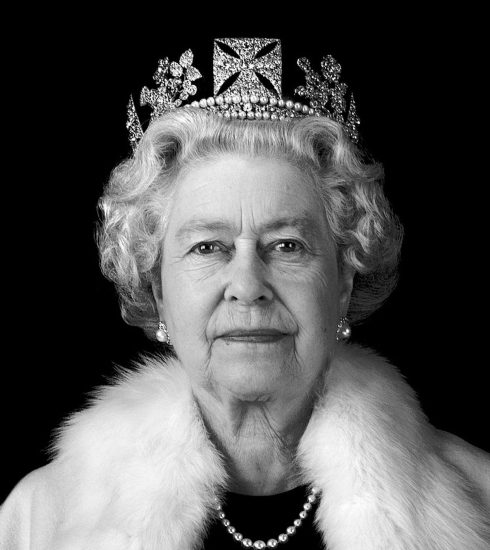For Pastor Ituah Ighodalo: Total Reorientation is Key to a New Nigeria
Religion and politics, two concepts heavy on loyalty, do not exactly see eye to eye. In fact, the English language explains the nonexistent relationship between religious organisations and secular government with a ‘church and state’ concept that basically emphasises the divide. Politics is touted as the devilish game that no believer must be caught partaking in, hence the hushed nature of Christians around political discussions.
Just over a month to this year’s general elections, the most anticipated one in recent times, Pastor Ituah Ighodalo, Founder and Senior Pastor of Trinity House Church, Lagos, shared powerful insights on politics, the church’s role and life after the death of his beloved wife, Ibidunni Ighodalo, with DOWNTOWN’s Editor, Onah Nwachukwu.
In the hearty and super powerful interview—something like a liferecalibrating sermon—Pastor Ighodalo, after sharing what life as a single dad feels like, focused on the outright rewiring of the nation’s fabric as he constantly questioned both the mentality that has subjugated the majority of Nigerians to reason how they do and a political system that has shown no promises of getting the best of the crop on the hot seats, and preached for a total reorientation.
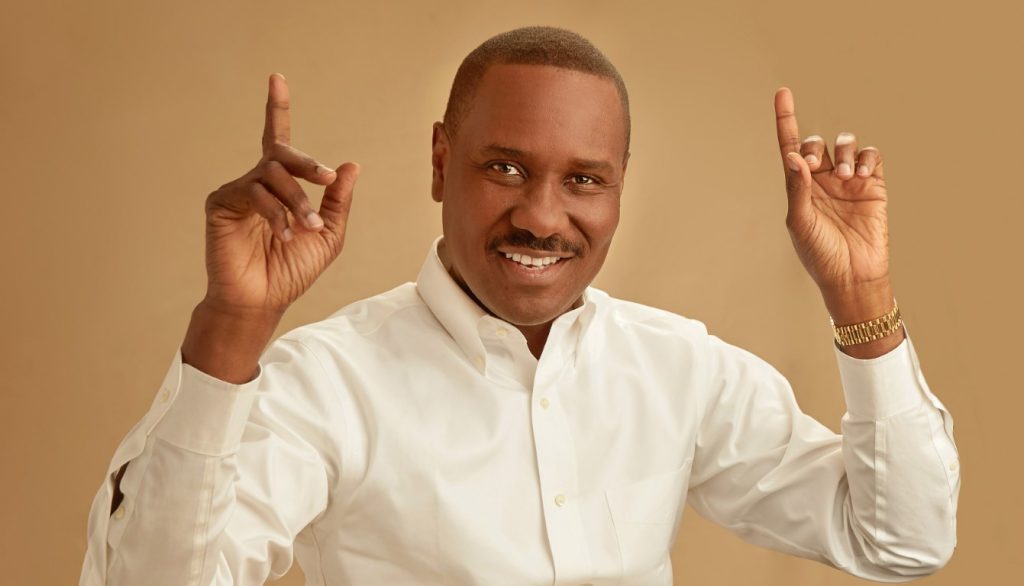
I know this is a very difficult conversation: I have to ask if you have been able to come to terms with your wife’s death.
More or less, I think I have coped. She is gone. There is evidence of that everywhere. It doesn’t stop me from missing her, still loving her and everything she represented, but I have managed to keep going, keep life going and do the things that I need to do and the things that have to be done. When you look around, and she’s not there— you try to ask a question, and there is no physical answer. But I think I’ve coped. We’ve adjusted. The children and I, we’ve found a rhythm. Things need to be done, and we’re doing them, including some of her affairs. We are just taking it one day at a time.
Have the kids come to understand that mummy isn’t coming back?
Yes, to a large extent. They miss her very much, both of them, especially moments when there are flashbacks. But they know that mummy has gone to a better place, and she’s not coming back physically. When they ask questions, we give them answers as best as we can.
How have you coped with bringing them up without a mum?
I do what I have to do. I try to be there for them as much as I can— spend as much time as I can with them, take them to school, try to come back in time before they go to bed, do a few things together and so on. I have support from their granny, Ibidunni’s mum, is very supportive. My sister-in-law, Ifeyinwa—my brother’s wife; my sister, Tolu, is very supportive, and Ibidun’s former assistant, Dami, is supportive too. I also have a good home structure that takes care of them, so we are coping.
What will you say is the most interesting thing you’ve learnt about being a single dad?
Children can really be fun if you spend time with them. You just have to be a bit patient and be there for them. It’s quite interesting.
Last year, it was rumoured that the church elders had said it would be a good idea for you to remarry.
Elders of my church? Well, nobody came to discuss that with me, as far as I know.
Does this mean you’re not under any pressure to remarry?
Not as far as I know. There are conversations here and there; I ignore everything. I’m not interested. Not at all.
If you were, Ibidun’s shoes would be very big ones to fill. The first thing that greets you as you walk into this house is her picture which would intimidate intending, and I see you are still wearing your wedding band. So it seems clear that you are not considering remarrying, at least for now.
MnnMnn (A sound meaning no)…Not at all.
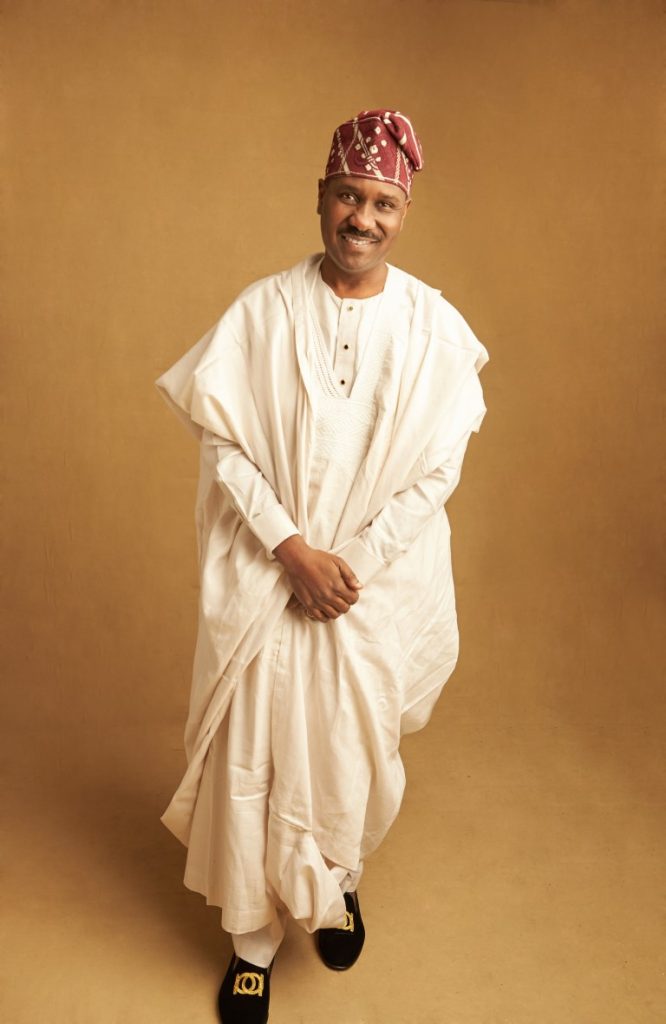
Let’s talk about politics. We are inching closer to the elections. I know men of God generally do not like to be involved, but we currently have two prominent candidates— Bola Ahmed Tinubu and Peter Obi. What do you think citizens should look out for in terms of a leader for Nigeria?
I tell people that for all intents and purposes, officially, there are 15 presidential candidates as far as I’m concerned. The first thing that we should do is to think more for Nigeria. What is in the best interest of the majority of Nigerians? Not what is in my interest as an individual. So what will work best for 215 million Nigerians? What kind of a leader do they need to help them get out of almost 20 or 30 trillion naira worth of debt, lack of infrastructure, incoherent policies, poverty, ignorance, illiteracy, lack of nationalism and national direction, pain and insecurity that bedevils this country, the malaise of corruption that we have found ourselves. What kind of a leader do we need at this time? Biblically, the Bible tells us in the book of Second Samuel Chapter 5 that the people went and looked for David and said, “David, come and be our King because even when Saul was King, you were the one who led us into battle, fought for us and killed Goliath. You were the one who was selfless enough to let your life down for the rescue of Israel.” So what kind of a leader does Nigeria need? Number one, a visionary leader. A leader whose vision and direction for Nigeria are clear and acceptable to us. Number two, energetic and hardworking. His own person who knows exactly what they want.
Number three, free from corruption as best as possible, or out of the 15, which one can we say is the least corrupt? Most of them have one thing or the other if you’ve lived in Nigeria long enough, but which is the least corrupt— if you are going to score them based on reputation, knowledge, or even rumour of corruption because you can’t really prove corruption anyway, but at least tongues wag, so of all the tongues wagging, which one is the most wagged about concerning corruption? Number four, which one is most hardworking, honest, driven, nationalistic and wants to bring Nigerians together? Which one has incredible capacity? Which one is most appealing to the majority of Nigerians? Which one is most accessible in terms of wanting to touch your leader, feel your leader, or speak to your leader? Which one is most humble? Which one is most God-fearing? —This is very important from my perspective because a person who is not God-fearing is difficult to manage. A strong leader can only be checked by their fear of God. Which one of them is most exposed, welltravelled, and best educated? The pedigree, the educational background, and the public and private records of the past are open, and we all can know and acknowledge that this is the pedigree and background of this person. I run a group called ‘The African Leadership Group,’ and we have a scoring template for analysing good leadership. Barack Obama became the President of America because he ticked some boxes for that time, including his background, because it was at the time that Americans felt it was time to give a person of colour a chance. If you notice Barack Obama, he wore one set of suits or one type of colour for eight years.
It was deliberate to give an image of a person who wasn’t flamboyant, who was decent, trustworthy and stable. He avoided any kind of rumour or gossip or whatever. Bill Clinton got away with Monica Lewinsky, and Trump did all sorts of things, including abusing women, but Barack ran away from everything, stuck with his wife and avoided all of those things. He never said one bad word because he needed to show the strength and personality of a good leader at that time, and he did a decent job. My only problem with him was his position on gay rights and the fact that he’s not pushing hard enough for Africa and the black person. But again, he wanted to show that he wasn’t too African-centric so that he would at least get a second term and go away as the President of America, not the President of Africa in America.
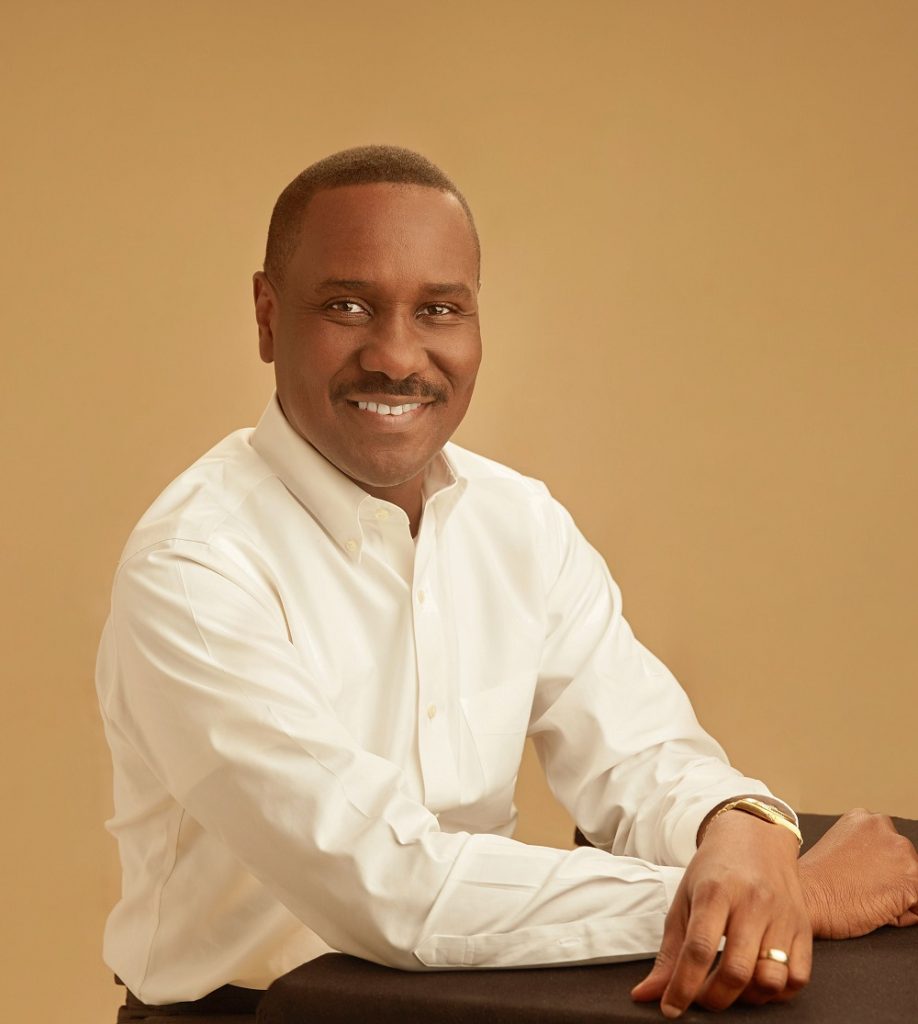
We need a leader who is ready to die for Nigeria, not someone who’s going there to personally enrich themselves or have what we call ‘State Capture’, something we’ve where some people have cornered the resources of Nigeria and think they are entitled to it while the rest of us can beg or crawl and what we are given is what you should take. We need to give Nigeria a chance where we can unleash the potential of this country, have an even playing field, let us reward hard work, labour, intelligence, and capacity, and you don’t need to know anybody before you get your own space in Nigeria, that’s what we want. And Nigeria is a beautiful place. With the right leadership, we can turn this economy in 10 years. All we need is a level-playing field, a safe environment where people can come and do their business, invest their money, and know precisely what they are going to get for what they are investing, where you don’t have to go through bureaucracy, corruption and all manner of things to get something done.
People are begging to invest in Nigeria because Nigeria has such economic value and potential, but the bureaucracy, corruption, red tape, selfishness, greed and insecurity make people run away from Nigeria. So if you had a leader who created stability, peace and an enabling environment, people would come with their money and turn this economy around. It’s not rocket science. It’s a complex society, with too many interests all over the place, but people will file in and behave if they see a direction, and that’s all we have been looking for in Nigeria; an honest direction of where we are going and minimal corruption.
I am not saying you totally eradicate corruption; it is impossible, an endemic even in the civil service, and it’s terrible. But if you show the right kind of leadership and tone at the top, people will begin to file in over time.
How do we begin to encourage the country to start seeing capable younger people as deserving of a chance to lead the country? Government won’t seem to allow young people. What is your opinion on having a young person run for that position?
We have had young military presidents in the past. Gowan was 32 years old when he became President; he wasn’t married, he was single. Obasanjo was 38 or 39 when he became Head of State the first time around. Muritala Muhammed was about the same age, and Danjuma was about 36 or 37 at that time. Diete-Spiff was 25 years old when he became the first Military Governor of Rivers State, so in a military era, you had those people.
But what has happened is that this same military has haunted Nigeria’s political development. Obafemi Awolowo was under 50 when he first became Prime Minister of the West, he was around 48 or 52, but I am not sure right now. So you had a young set of people who emerged in those days. The challenge is that these same groups of people just stayed on because of military incursion. Since 1966, it is the same class of people that has been leading Nigeria. It is the same Buhari, who was about 28 at the time, Obasanjo, Babangida, and so on. And they are still influential today partly because they held the country down, and when politics started again in 1979, the politicians that had been hanging on the shelf for that long came back. The Shehu Shagaris of this world, Mbadiwes, and so on. But if we had political evolution, they would have done their one or two terms and moved on, and a fresh crop would have come. So it was like stunting the growth and development of Nigeria.
And when the military was leaving, they brought themselves back, reinvented themselves, brought back the likes of Abiola, and those ones captured the Nigerian states, and that’s the trouble we have been having thus far. And the young ones have not emerged with a correct vision of their power. They say they are 70 percent of our population and have the power of the PVC, the votes. They need to decide, first of all, from among themselves, who they want in government, and if they support that person, that person can be the President.
But then you need to completely restructure the politics of Nigeria because, as it is, it is so expensive to run this presidential system, and anyone who doesn’t have resources cannot run it. Most people who have the resources have gotten them through the government, corrupt enrichment or used state money, so they keep recreating themselves all the time because they use our money to fight us. So we need to restructure the politics of Nigeria and do some kind of parliamentary system where you don’t need to spend too much money to get into the parliament, and when you are in, we elect from amongst the parliamentarians a President or Prime Minister, which was what we used to have in the past. So all you need to do is win your local government, and you didn’t need to spend too much money to win that or your council or whatever it was in those days. For the youths, I’m thinking of a system where you evolve, you start from government, and from winning that, you compete for state, and from winning that, you compete for some kind of regional administration.
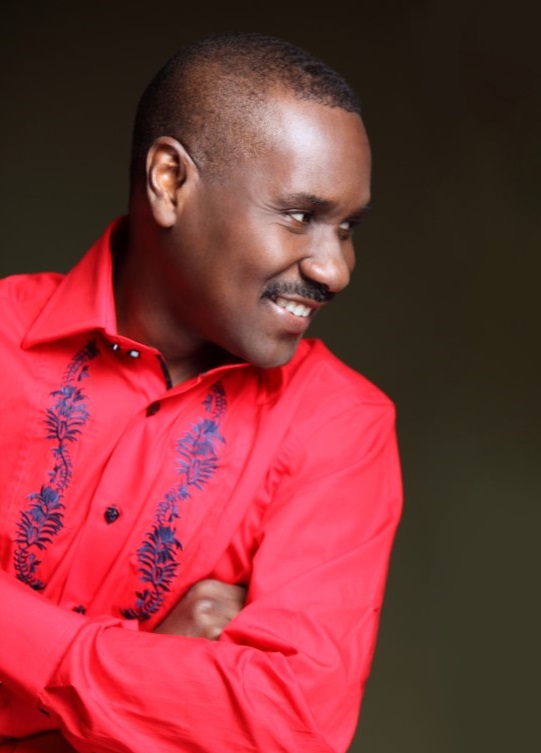
From winning the regionals, then you can compete for the presidency. That way, you are learning and growing, having started from the bottom. And as you have led at each level, the public analyses and evaluates you. So if you’ve been a good local government chairman, they will consider you from among the other local government chairmen to run for Governor. If you didn’t do well in your local government, you wouldn’t dare show your face to run for Governor.
So we get the best of the Local Government Chairmen to be Governor, and if you do well as a Governor, they will put you up to run for President or Vice President. My thinking is even that you might compete for the vice presidency, and if you become the vice, you move automatically to become President. That gives some continuity, and you can even zone it. This zone provided a vice president this year, and that zone will provide the presidency, on and on like that. So it becomes a zonal competition at that level. You win your zone and become the vice president. That way, you de-emphasise the use of money, corruption, and abuse of power and create some stability in the system. Until you restructure Nigeria’s political process, it will be tough for a man of simple means to aspire to a position of power. These days, before you look for a candidate for one position or another, you evaluate their resource. Is he going to have enough money to run for office? And if he doesn’t, he’s not going to stand a chance. It is unlikely that good people will have that kind of money because most of that kind of money has come through the government’s intervention, which is a nice way of saying ‘some form of corruption or the other,’ and that is a fact. Even if you are a contractor and you’ve made that kind of money, it is usually because you’ve been close to the government, and there must be corruption in there somewhere. Very few people have made money through their own business efforts buying and selling, and running up and down and running industries, and even those people have had to look at the face of the government to some extent. That’s why there’s this conspiracy of silence by the elites because many of them have had to do business with the government to get to where they are. And right now, they are keeping very quiet because they don’t want to ruffle any government feathers. They don’t know who will come into government and want to be friends with every government, so most of them sponsor every party and then keep quiet. Evil reigns when the righteous keep quiet, and that’s exactly what we are having in Nigeria right now.
Many very selfish people who don’t care about Nigeria are in power mainly because the elites are silent because they fear for their safety, resources and businesses. So nobody is really telling the truth in Nigeria. People are dodging here and there, trying to hide their heads and survive. Then they get bad governance and begin to complain, and the next thing, they are running around chasing the same person they are complaining about, shouting ‘excellency’ here and there just because they want to get their own piece of the action.
So we need to reorientate Nigeria and Nigerians totally. And as for the poor public, they are so ignorant and disconnected; they have limited understanding and can’t connect their poverty with that man riding in government escorts all over the place. They cannot connect their lack of portable water with that man who has not paid their salaries or retirement gratuity. They cannot connect their son not being able to go to school with this person who calls himself the governor or head of state, or senator until they see the connection that unless you have good governance instead of people coming to give you 1000 or 2000 naira, a loaf of bread, campaign materials every four years unless you get somebody who wants to run good governance. In fact, some of them reject it and say, ‘na infrastructure we go chop? Na school and hospital we go chop? I no get food, na road we go chop?’ A friend of mine came to participate in politics in Nigeria, ran around with his own money trying to sell good governance and people said, ‘no, give us money.’ He got frustrated, ran away and never came back. So you have to totally reorientate Nigerians and let them understand right from wrong and good from the bad. We have a lot of work to do in Nigeria, it looks almost insurmountable, but some of us are committed to trying to do it, to educate the people, inform them, let them know, encourage them, pray for them and hope that over time, the message will get across to them.
Would you say that the forum you run for young leaders in your church is part of what you do with teaching young people to educate the poor masses?
Ever since I have been conscious, I have been concerned about Nigeria and its development. You have to understand from my background; my mother was a top civil servant in Western Nigeria, and I understood, to some extent, the workings and benefits of good governance. What I didn’t quite understand was the impact of governance on the economy. Of course, my parents, having worked in government, discouraged us from going into government because, by that time, the corruption had started. And that is the mistake a lot of people of my background made, we allowed all manners of people to get into governance, both the public service and politics, and we thought that we could survive on the private sector, but if the government doesn’t give you policy and a levelplaying field, the private sector suffers, and that’s the pain everybody is going through.
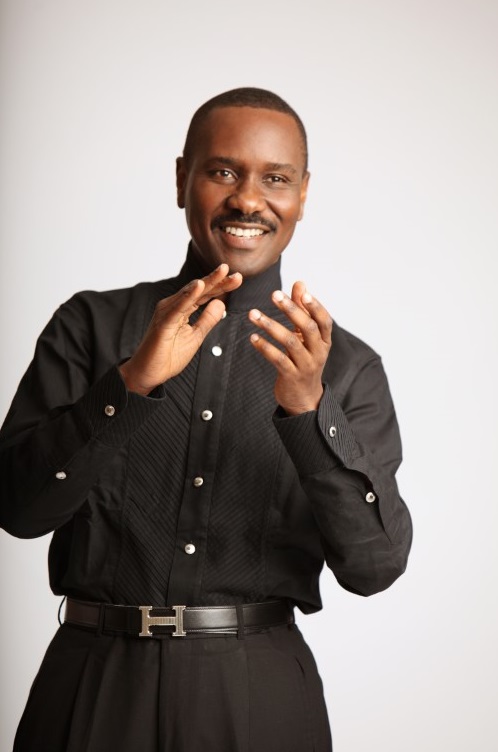
So when I became a pastor and started leading people, I spent a lot of my time and energy creating a relevant, understanding church whose eyes were open to society’s challenges. We run about 12 foundations in my church which try to address almost every problem. We run the church like a little government. We try to educate people, open their eyes, get them involved, and push them into politics because one of the mistakes we made even when we became born-again was that our leaders told us that ‘politics was dirty, don’t go there, it will affect your Christianity, you might backslide and go to hell, leave politics for the politicians and the bad boys,’ and that is what we did. We now have bad governance and bad boys all over the place running our lives, and that’s the irony. Therefore, it is time to try and address that and change it and let people know that we will continue having a bad government unless good people get into politics.
What are the few things you’d say young people need for that reorientation, as it seems now that everyone is just about quick money these days? How do you reckon we can teach them?
It is not ‘how can we teach them?’ It is who will. You learn to speak a language because you grow up in a house where that language is spoken, so every child learns from their parents. In this case, our parents are our leaders, and we learn from their lifestyle. So when you see your governor, senator or President carrying an iPhone 13, driving a huge X class (luxury car), rolling around with an entourage, and living in opulence, that becomes your standard and yardstick. That is what you aspire to. Until we find a president who wears one-colour clothes, simple wristwatches, simple tie, who reduces his convoy from 20 to three or four cars if need be, who carries his own briefcase, who lives a simple life and is accessible to everyone, we have the wrong mindset and yardstick, and therefore the youth aspire to what they see. That’s their evaluation of a good life. Until you make life simple and ordinary, and governance ordinary so that a governor or President can see and talk to his people and he’s not flamboyant all over the place. They set the tone, the businessman copies, and then the others copy, and they all are just looking for life of luxury because they think that is the right way to live. We have to change that mindset, and the rot must end at the head. So until you get the right kind of people in the right places of fatherhood, leadership, and tone-setting in Nigeria, you will not get it right. It’s as simple as that.
Some people have argued that it is parenting. Unlike your time and mine, kids nowadays are internet-raised as their parents have to work longer hours to survive today’s worse economy. Do you agree with that?
It is (parenting), but who sets the tone for the parents? The parents get the tone from the President, their bosses, or other people in leadership positions. Some who still have their feet firmly on the ground have good parentage, but a lot didn’t have that privilege. A lot of people have had to make their way somehow. The average Igbo boy that leaves Enugu at age six and runs to Lagos is under the apprenticeship of a master, which is his parent. If his master is wearing pieces of jewellery and living flamboyantly all over the place, that becomes his yardstick. Except if before he leaves home at 9 or 10 years old, his parents instilled in him, “know whose son you are,” he is likely going to come to Lagos and follow the thinking of that master, and it’s the same all over the place. We need a total reorientation in Nigeria. Somehow, a lot of people who have no value, who are not instilled with strong parental discipline, found themselves in positions of leadership, and they recreated and reset their values, and went after the things that they had been starved of and took it back on society, and reset our values and thinking in society.
When I was growing up, civil servants were the most respected people in Nigeria. They didn’t have much money, but they had dignity, honour, and respect. After them came lecturers and professors, then businessmen. You know, in those days, you looked a little down on businessmen because you felt it was because they were not well-educated that they fell and ran into business. Civil servants were respected because they had an education. That was what everybody looked up to in those days. After the army took over power, they elevated the military slightly above civil servants. The first persons with respect in Nigeria were the civil servants, not even the politicians. Because the civil servants controlled the administration of government and advised the politicians, politicians in those days could not do anything contrary to the advice of the civil servants. But these days, politicians threaten civil servants, bully, sack and reallocate them. In those days, you couldn’t sack a civil servant anyhow.
One of the military heads of state also destroyed the civil service; one day, people just woke up and lost their jobs. Part of what I’m told is that a civil servant resisted his instructions, then he said, “you know what, I will deal with these people,” and that is part of what led to the corruption and corrupt in the civil service today where civil servants now just want to protect their interests, make their money and go back to their homes. We need to reorientate, we need to strengthen the civil service, and we need to have strong institutions. We need to reorientate the universities. We never used to go on strikes in the university because the lecturer was respected. You earned your salary, bought your car, built your house, and sent your children to school overseas on your salary without stealing because your salary was more than enough. On the back of your salary, you took a housing loan, and in 20 to 30 years, you’ve built your house, and you pay bit by bit. Everything was organised. One naira was equal to one pound in this same Nigeria, so we need a total reorientation, and a lot of our politicians today don’t have that mindset; this class, most of them don’t have that mindset. The ones that had it have been pulled down and corrupted by the ones that didn’t have it because they are in the majority. I see many politicians of a good background get into politics and get sucked into this same crazy politics.
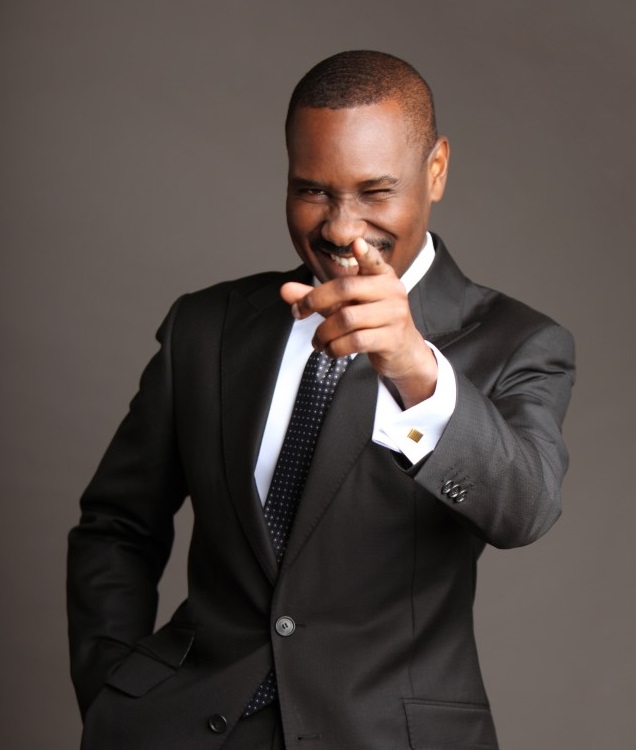
You spoke about the message you got growing up that rebukes men of God from involving in politics. What do you think the current Vice President Osibanjo could have done differently to have secured him properly in the eyes of other politicians, as loyal and giving him a chance to run for the presidency this year?
That is a tough one. He and I have not spoken; I haven’t asked him. But from the sidelines, he probably underestimated the monetisation of politics in Nigeria—Let me use those words. It was really bigmoney politics in the APC primaries. It wasn’t a politics of values, ethics and performance.
It was money politics. And it was politics as of old, and they drew out all the tricks politicians know how to do to ensure they kept it within that context. I think I will leave it at that and leave the rest of the details on the pages of the papers.
Let’s talk about the church. It is a new year, and there are usually prophetic messages from different pastors at this time of the year. As a man of God, do you have a message for Nigeria this year, 2023?
There is hope for Nigeria. Nigeria is very blessed. I think that God loves Nigeria very much. And I think that even if we don’t get it right this time, we are beginning to get it right. Why? There is better understanding, involvement, engagement and enlightenment, so as bad as our political process is, it would have evolved like this because many of us, including myself, were a little bit ignorant in 1999 when politics started again. We just left it. This is the way it would have gone. I’m even grateful that it is not worse than it is because it could have been much worse. Although, we haven’t quite seen something this bad. The more enlightened people are involved in politics, the more courageous people speak out and embolden themselves, and the better the system will be.
Now, to social media and the church. Many people would argue that social media is negative. How would you say it has helped the church?
I don’t understand why they would say social media is negative. Social media is a means of communication, and I thank God that communication has been simplified and made almost inexpensive. You can practically run your own TV on social media. You can have your little post, send it on WhatsApp, and reach as many people as possible within your ability and context. So social media, for me, is something positive. It’s just that whenever you have a good thing, both good and bad compete for its space. So the church needs to fight back and push back the dirty press that’s in there (social media), reorientate and reeducate its people, and clean out the social media space as best as possible within its own capacity.
It is like runways and fashion shows; people think they are bad but aren’t. What is bad is the kind of people who control it and the type of clothes on the show. But if you have a good runway that shows decent clothing and makes that fashionable and makes people aspire to it and change the minds of people, the runways won’t be bad. When we started in Christianity, people thought even holding a service in a cinema hall was bad, but over time, our Christianity has shown that you can hold your services anywhere, and it is not bad for it to be in a cinema hall. That is the reorientation that we need to reorientate people. Fashion shows are not bad. It is the fashion that is being shown that tends to be bad. Television is not bad, but the blue movie and content are bad.
Music is not bad; it is how people who control music drive it that makes it bad. Christianity, the church, ethical people and even the mosque need to fight back and begin to fight and compete for the media space and say no; we are not going to have this nonsense in our media space; we want things in the media space to be this and that. And that is part of what we are trying to do in Trinity House, to reorientate people in terms of what needs to be fashionable, what needs to be decent, what people need to aspire to and look for, and not allow the bad press to take over. There was this thing called sagging that became very fashionable sometime ago, and people went about sagging, so I told them in my church, if you are doing that sagging, what you are saying is that you like prison clothes because that is the origin of that. These fashion people can sell anything just because they want to make money. The church and wellmeaning people must fight back and say, ‘no, we are not going to allow you to water down what should be a good standard. We are going to fight back.’
A lawyer by training, Onah packs over a decade of experience in both editorial and managerial capacities.
Nwachukwu began her career at THISDAY Style before her appointment as Editor of HELLO! NIGERIA, the sole African franchise of the international magazine, HELLO!
Thereafter, she served as Group Editor-in-Chief at TrueTales Publications, publishers of Complete Fashion, HINTS, HELLO! NIGERIA and Beauty Box.
Onah has interviewed among others, Forbes’ richest black woman in the world, Folorunso Alakija, seven-time grand slam tennis champion, Roger Federer, singer Miley Cyrus, Ex Governor of Akwa Ibom State, Godswill Akpabio while coordinating interviews with Nigerian football legend, Jayjay Okocha, and many more.
In the past, she organised a few publicity projects for the Italian Consulate, Lagos, Nigeria under one time Consul General, Stefano De Leo. Some other brands under her portfolio during her time as a Publicity Consultant include international brands in Nigeria such as Grey Goose, Martini, Escudo Rojo, Chivas, Martell Absolut Elix, and Absolut Vodka.
Onah currently works as the Editor of TheWill DOWNTOWN.



